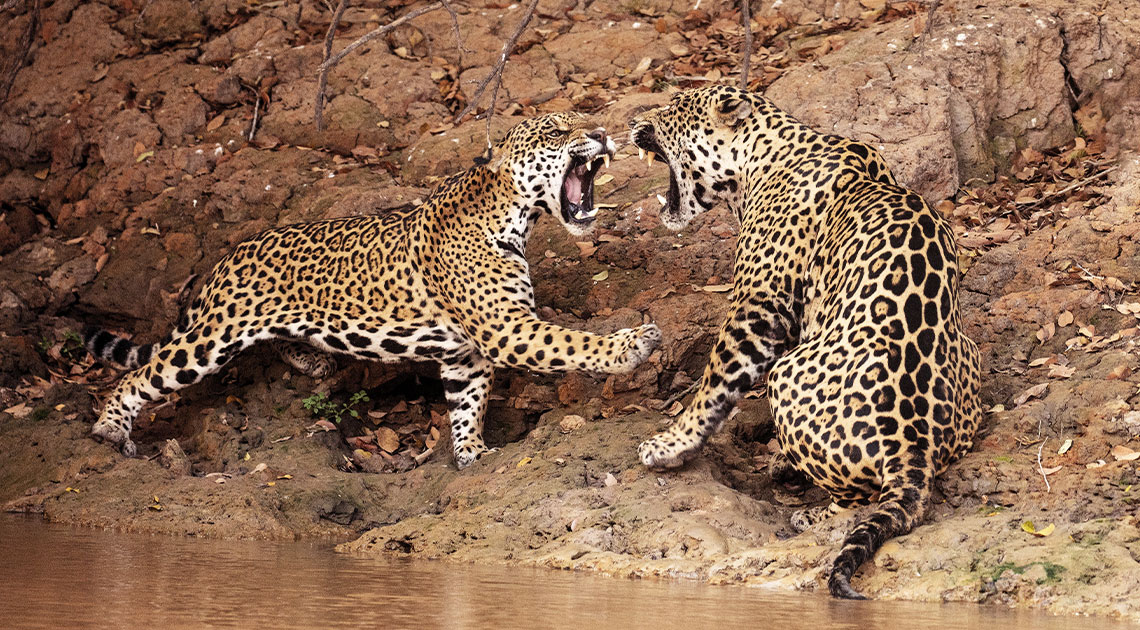
Queucer / WikimediaJaguars compete for space at the Taiamã Ecological Station in Cáceres, Mato GrossoQueucer / Wikimedia
In 2020, major wildfires destroyed more than 17,000 square kilometers of native vegetation in the Pantanal. An estimated 17 million vertebrates died. Researchers from the University of Oxford, the World Wildlife Fund (WWF), the Panthera Cooperation, and the Homem Pantaneiro Institute installed camera traps in the Serra do Amolar mountains of Mato Grosso and Mato Grosso do Sul in December 2019, December 2020 (both before the fire), and February 2022, then compared the data to determine the effects of wildfires on the populations of eight animal species. The biggest impact was on the giant armadillo (Priodontes maximus), whose habitat suffered a reduction of 82.4%, with little evidence that its population will recover. The probability of encountering four herbivores — the tapir (Tapirus terrestris), the red brocket (Mazama americana), the collared peccary (Dicotyles tajacu), and the Azara’s agouti (Dasyprocta azarae) — fell by up to 27.5%. Among carnivores, the ocelot (Leopardus pardalis) lost a small part of its habitat, the cougar’s (Puma concolor) habitat remained unchanged, and the jaguar’s (Panthera onca) doubled in size. Since photographs of the same animal in different years were rare, the conclusion was that migration from other areas lessened the impact on felines, reinforcing the importance of preserving refuge areas for these species (Global Change Biology, April 24).
Republish